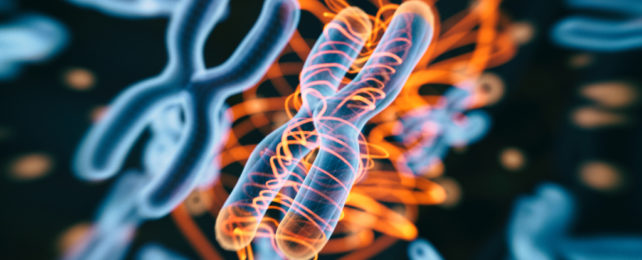When Spanish scientists came across a strange case of a woman who had experienced 12 different types of tumor before the age of 36, they decided to dig a little deeper to find out why she was so susceptible to cancer.
The 36-year-old woman was first treated for cancer at the age of two. At the age of 15, she was diagnosed with cervical cancer.
At 20, a salivary gland tumor was surgically removed. A year later, she had further surgery to remove a low-grade sarcoma.
And, as she went through her 20s and 30s, several different tumors were diagnosed.
In total, she has experienced 12 tumors, including five that were malignant.
With the permission of the woman and her family, an international team of researchers, led by the Spanish National Cancer Research Center, took samples of blood and used single-cell DNA sequencing to look at the genetic mutations inside thousands of individual cells.
The researchers discovered something strange; this woman had a one-of-a-kind mutation that made her more prone to cancers.
She had a mutation in both copies of the MAD1L1 gene, which is unheard of in humans.
The MAD1L1 gene is responsible for a key piece of machinery that helps align chromosomes before a cell divides. MAD1L1 has previously been suspected of playing a role in suppressing tumors.
Mutations in the gene aren't unknown – in fact, members of the woman's family carried one. But this is the first time both copies of the gene have been found to carry this particular change.
A double (or homozygous) MAD1L1 gene mutation is lethal to mouse embryos, so it's a very surprising find in humans.
In this woman, the mutation was causing cell replication dysfunction and creating cells with different numbers of chromosomes. Around 30-40 percent of her blood cells had an abnormal number of chromosomes.
Humans normally have 23 pairs of chromosomes inside the nucleus of every cell in our bodies.
Chromosomes are condensed packages of DNA that come in an 'X' shape and form when a cell is about to undergo mitosis or cell replication.
In each pair of chromosomes, one comes from the person's mother and the other comes from the person's father.
People with a rare condition called 'mosaic variegated aneuploidy' (MVA) have various numbers of chromosomes in different cells, like a mosaic of different colored tiles. This condition can be caused by several different genetic mutations, including the one seen in the woman with 12 cancers.
People born with MVA often experience developmental delay, microcephaly (where a child's head is smaller than normal), intellectual disability, and other congenital defects. They are often predisposed to cancer.
In this case, the woman had no intellectual disabilities and was living a relatively normal life (considering the number of rounds of cancer treatment she had undergone).
"We still don't understand how this individual could have developed during the embryonic stage, nor could have overcome all these pathologies," says Marcos Malumbres, a molecular biologist, co-author and the head of the Cell Division and Cancer Group at the Spanish National Cancer Research Center, where this study was done.
While the role of aneuploidy is not well understood in cancer, we do know that around 90 percent of tumors have cancer cells with extra or missing chromosomes.
And we know that a high degree of aneuploidy is associated with worse outcomes in cancer.
The study revealed that people with aneuploidy, such as this woman in the case study, have an "enhanced immune response" that "could provide new opportunities for the clinical management of these patients", the researchers say.
This paper was published in Science Advances.
